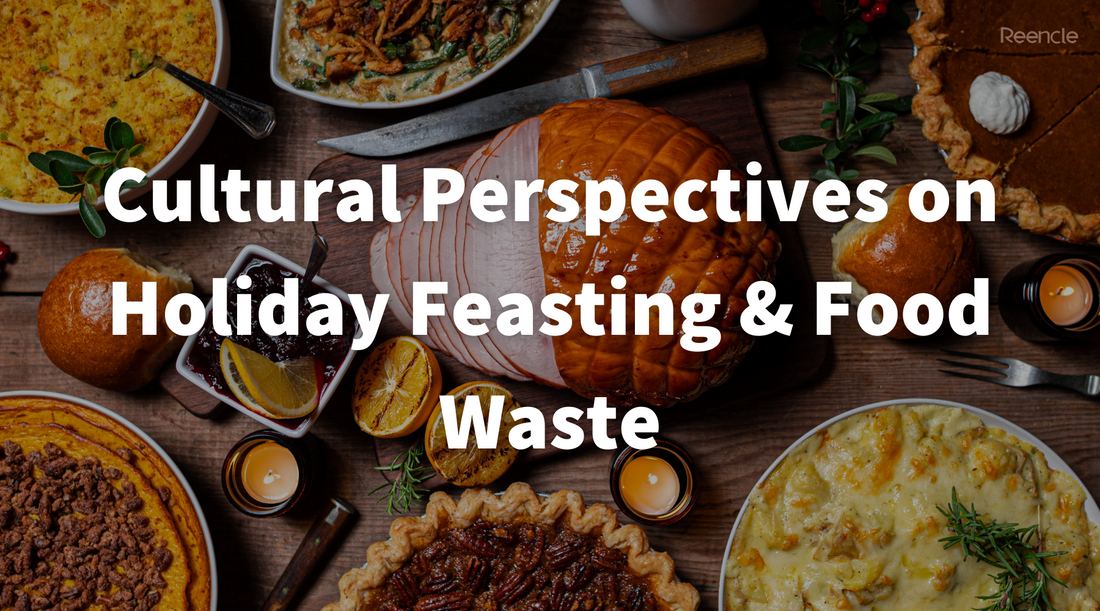The holiday season is a time of joy, festivities, and, of course, feasting. Across the globe, diverse cultures express their unique identities through the communal act of sharing special meals during this time. However, as we revel in the richness of our cultural traditions, it is crucial to explore the often-overlooked aspect of food waste associated with these celebrations. This article embarks on a journey through various cultural perspectives on holiday feasting, shedding light on both the celebratory abundance and the concerning issue of food waste.

The Cultural Tapestry of Holiday Feasting
Every culture has its own distinctive way of celebrating the holidays, and these celebrations are often marked by elaborate feasts. From the Thanksgiving tables of North America laden with turkey and cranberry sauce to the Mediterranean feasts featuring rich spreads of mezze during Christmas, food is an intrinsic part of cultural expression.
Symbolism of Abundance
In many cultures, the holiday feast is symbolic, representing prosperity, generosity, and the act of sharing abundance. The preparation and consumption of special, labor-intensive dishes become a tangible expression of gratitude, tradition, and communal celebration.
The Dark Side of Abundance
However, the pursuit of abundance can lead to unintended consequences. Cultural norms and societal expectations often drive individuals to prepare more food than necessary, resulting in substantial amounts of unconsumed and discarded food. This overindulgence, though rooted in cultural practices, has far-reaching environmental and ethical implications.
Feasting and Fear of Scarcity
Some cultures harbor a fear of scarcity, historically rooted in narratives of hardship and survival. This fear prompts individuals to stockpile food during holidays, contributing to excessiveness and, ultimately, to food waste.

Mitigating Food Waste: Cultural Practices for Change
Amidst the challenges, many cultural practices offer inspiration for mitigating food waste during holiday feasting.
Creative Use of Leftovers
In Italy, leftover pasta might transform into a frittata, and in India, yesterday's curry could become a delicious filling for samosas. Cultures that embrace the art of creatively repurposing leftovers demonstrate an effective strategy for reducing waste.
Community-Centric Celebrations
In certain cultures, holidays extend beyond the immediate family to encompass the entire community. Shared feasts, potlucks, and communal kitchens foster an environment where excess food is distributed among neighbors or donated to those in need, reducing the overall impact of food waste.
Sustainable Traditions
Some cultures inherently incorporate sustainability into their holiday traditions. Nordic countries, for instance, celebrate "julbord," a Christmas buffet emphasizing seasonal and locally sourced ingredients, promoting a more eco-friendly approach to holiday feasting.

Nudging Toward Change: The Role of Education and Awareness
Education plays a pivotal role in reshaping cultural perspectives on holiday feasting. Initiatives promoting sustainable practices, such as meal planning, smart shopping, and portion control, can help individuals adopt a more mindful approach to celebrating.
Influential Figures and Media
Celebrities, influencers, and media outlets possess the power to shape cultural attitudes. Campaigns and endorsements that highlight responsible holiday feasting practices can influence a broader audience and encourage a shift towards more sustainable celebrations.
As we cherish and celebrate the diversity of cultural expressions during the holidays, it is essential to recognize the impact our traditions have on the environment. By understanding and appreciating cultural perspectives on holiday feasting, we can work toward creating a more sustainable and mindful approach to celebrations. Whether through embracing leftovers creatively, fostering community-centric celebrations, or integrating sustainable traditions, every cultural perspective offers valuable insights that can contribute to a more conscious and eco-friendly festive season.
By coming together with shared values of gratitude and responsibility, we can make the holiday feast a celebration that nourishes not only our bodies but also the planet we call home.

